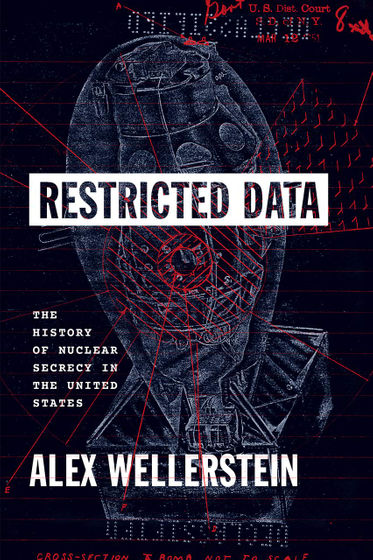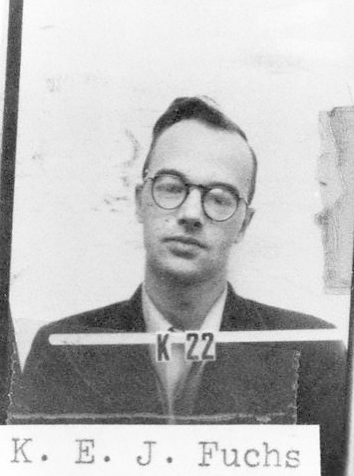How did the 'information restrictions' on the development of the atomic bomb affect posterity?

During World War II, the United States, Great Britain, and Canada launched the 'Manhattan Project' to manufacture atomic bombs by mobilizing all scientists and engineers to counter the development of atomic bombs in Axis powers such as Nazi Germany. I did. Nature, a major academic journal, explains the story of the handling of information hidden in the Manhattan Project.
Born secret — the heavy burden of bomb physics
https://www.nature.com/articles/d41586-021-01024-9
Nature focuses on the book 'Restricted Data: The History of Nuclear Secrecy in the United' published in April 2021 by Alex Wellerstein of Stevens Institute of Technology, who is known as an expert on the history of nuclear weapons. States '. In this book, Wellerstein details the journey from the early studies of atomic fission, which was the basis of the atomic bomb development, to the Manhattan Project.
Amazon | Restricted Data: The History of Nuclear Secrecy in the United States | Wellerstein, Alex | 20th Century

The title of this book, ' Restricted Data, ' was the first concept defined by the Atomic Energy Act of 1946 (commonly known as the McMahon Act). Because in the McMahon Act to prevent any information leaks surrounding nuclear weapons, 'the design, manufacture and use of nuclear weapons', ' special nuclear material all the data for the production of' 'use of special nuclear material in energy production' was made confidential. This is Restricted Data.
In order to be classified normally, it must first be formally evaluated. However, Restricted Data was born without the process of evaluation, and because it was a procedure to keep all data related to nuclear power confidential regardless of which private institution, national institution, or general researcher created it. Confidentiality) ”.
Wellerstein introduces an episode about Restricted Data that the US Atomic Energy Commission burns thousands of copies of the nuclear feature reported by Scientific American , a popular science journal in the United States, as 'contains confidential information.' It is a story that I made it. According to Wellerstein, the nuclear feature did not actually contain confidential information, but Hans Bethe 's commentary, which played an important role in the Manhattan Project and later won the Nobel Prize, It was said that the inclusion was a subject of concern. Wellerstein claims that the censorship situation at that time was quite severe from this episode.
In addition, Wellerstein says there is a 'misunderstanding' that 'allowing information leaks about nuclear development would allow enemy nations to make nuclear weapons.' German-born theoretical physicist Klaus Fuchs is a prime example of this misunderstanding. Fuchs contributed to the development of the atomic bomb under the Manhattan Project, but he continued to disseminate confidential information to the Soviet Union as a spy, and was convicted as a spy after the end of World War II.

Burning a magazine with known information may seem silly, but be cautious if the information is written by an authoritative person and there is any risk of helping the enemy make weapons. You should think that it is better to expect it. But, citing the remarks of Ted Taylor , the developer of Davy Crockett , Wellerstein argues against that. Mr. Wellerstein quoted the statement, 'thinking about how to make something that would destroy the World Trade Center,' with terrorist groups trying to get nuclear weapons in mind. Please see. No advanced technology is required. 'He said that it would be meaningless to keep the manufacturing method for atomic bombs secret. The World Trade Center was destroyed without nuclear weapons on September 11, 2001, so Theodore Brewster Taylor is described as 'foresighted.'
Wellerstein also points out that 'in modern times, the crime of information leakage itself is becoming more serious.' In the 1980s, a US Navy intelligence analyst was sentenced to two years in prison for selling footage of a Soviet nuclear-powered aircraft carrier to a magazine. Meanwhile, in 2018, a woman in her twenties called Reality Winner, who belonged to the U.S. Air Force, said she sold confidential information that 'Russia hacked the voter registration system to interfere with the 2016 U.S. presidential election.' Has been sentenced to five years in prison. Comparing the two sentencings, Wellerstein said, 'Winner's information leak is, of course, illegal, but the content itself was the same as the news that was reported on television almost every night. Winner's crime. I don't think it's as serious as revealing the secrets of the nuclear arms race. '
Related Posts:
in Science, Posted by darkhorse_log







